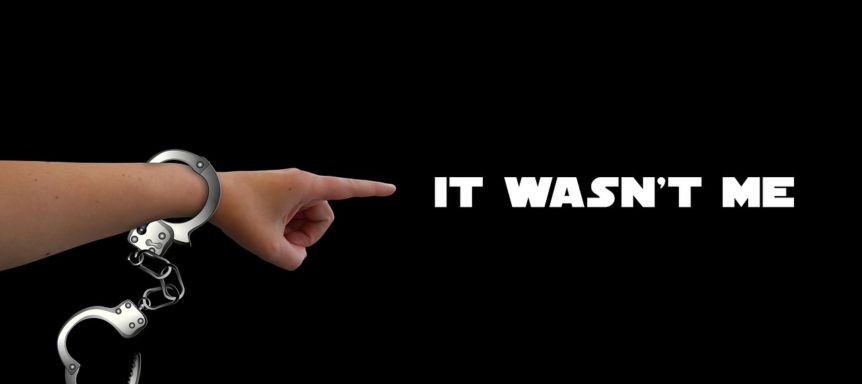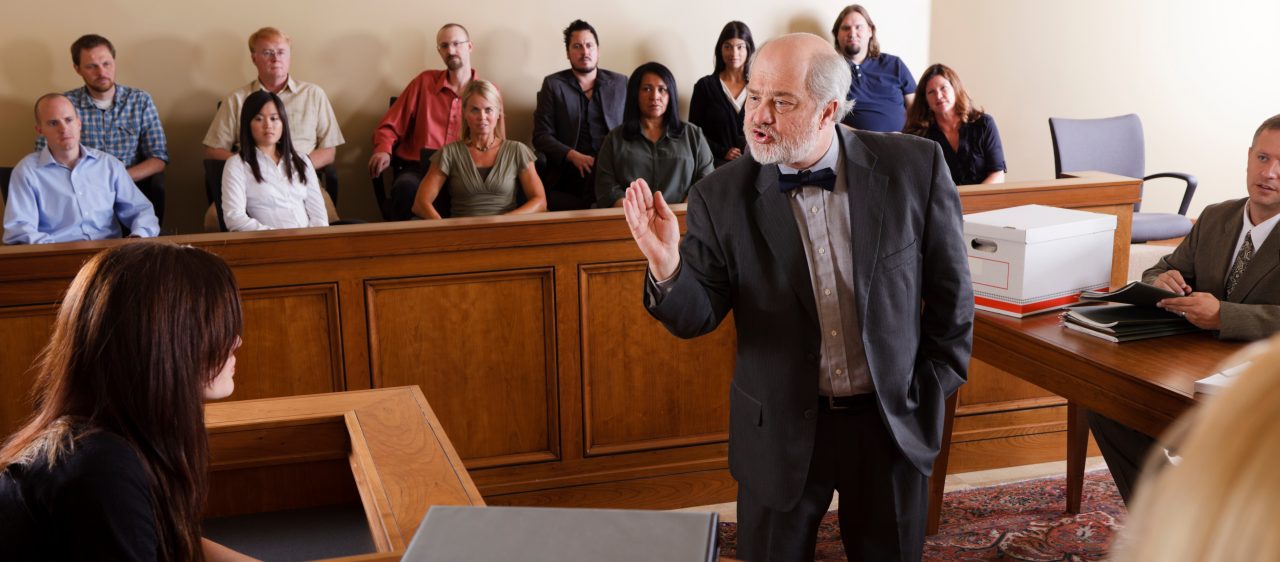Criminal Defense Attorneys: Is It Time To Call One?
When you are the target of a criminal investigation, it can feel like you are all alone against the police, the prosecutors, and the government. As investigators execute warrants, tear through your things, and pepper you with questions, you need to know your rights. First and foremost: you have a right to the assistance of a lawyer.
Police Questioning and Criminal Lawyers
Police officers are often well-trained in investigation. They know how to convince you it is a good idea, even in your best interest, to talk to them right away. They may say things like “Why don’t you just come answer a few questions? I’m sure we can clear this whole thing up.” But what they don’t tell you is that whatever you say will be used against you later.
Police are only required to remind you of your right to remain silent if they question you while you are in custody. So if you volunteer to answer their questions, you may never hear that you could have a criminal lawyer by your side to help you through the process.
If the police want to talk to you, call a criminal lawyer. We can serve as shields between you and the officers. Most of the time, answering police questions is simply not going to help. Having a lawyer on retainer to say “no” for you makes sure you don’t unintentionally say something that could hurt you later.

HIRING A CRIMINAL DEFENSE LAWYER: WHAT YOU NEED TO KNOW
While it would certainly be ideal to have an attorney present with you from the moment you’re placed at the back of a cop car, the reality is, it’s simply not practical. You should, however, make the effort to speak to a defense attorney as soon as possible, preferably after you’re released from police custody. This should be your priority if there are some pretty serious criminal allegations being leveled against you.
One of the main pros of seeking out legal representation early on is that a competent defense lawyer might be able to get your criminal charges list dismissed way before any formal charges are brought against you. They are also in the best position to negotiate other rights you’re entitled to that could very well increase your chances of getting a favorable outcome.
The timing here is crucial. So, it’s important to have a lawyer negotiate and bargain for your rights shortly after you’re arrested.
Furthermore, a competent criminal defense attorney can act as a mediator between you and the aggrieved party. In some instances, it is quite likely that tempers flared out of control which ultimately led to your criminal mischief and eventual arrest.
Defense lawyers have sufficient experience to be able to approach the other party and calmly argue on your behalf. The best-case scenario is the other party agreeing to drop the charges that led to your arrest in the first place and reach an amicable resolution outside of the legal system.

What Does a Criminal Lawyer Do?
Because no criminal case is exactly like another, criminal defense lawyers are trained to pick out the parts of each case that make them unique. In essence, they use their knowledge to find subtle evidence and reasons why you should win the case.
Also, the best criminal defense lawyer for you may be able to spot certain arguments and factors that could mitigate or even negate any potential crime. Even if you are guilty and the evidence is against you, they may be able to help you reduce fines and jail time.

What to Ask a Criminal Defense Lawyer
When interviewing a criminal defense lawyer, be sure to ask these ten important questions:
1.) How long have you practiced criminal law?
This question should not be overlooked. It’s a good way to determine that the lawyer has actually had significant experience as a criminal defense lawyer, instead of simply handling a few cases.
2.) How often do your cases go to trial?
Many criminal defense lawyers settle many of their cases via plea bargains instead of going to trial. If that’s the case with your potential attorney, then they likely don’t have a lot of experience at trial. Your case might be too complex for them to settle. If a trial seems imminent, be sure to find a lawyer who is both skilled and comfortable with trial work.
3.) Do you have a specialized area of law?
Criminal law covers a variety of cases. Some lawyers see the majority of their cases come from a specific legal issue, such as drugs, murder, DUI, or white-collar crimes. You should find out how many cases they have handled that are similar to yours. That way you can be satisfied that they know what they are doing.
4.) How much is this going to cost?
In criminal law, attorneys quote flat fees for their service. Occasionally, there is a range they can charge within, but most of the time the rates they charged are locked in at a flat figure. This question goes beyond just hourly rates, it gives you an idea of the other costs you could expect to see.
5.) Will you be the only one to work on my case?
You have to decide if you want an attorney who is solely devoted to your case, or if you’re willing to work with their team. The team option can actually save some money, since it usually means your lawyer will assign work to paralegals and associates who bill at lower rates. But if you’re worried vital info will slip through the cracks, you might want to find someone who can dedicate their time and attention to your matter.
6.) How would you handle my case?
This question allows you to see how a potential lawyer will approach your legal matter. You can also find out if the attorney thinks you should go to trial or settle without a trial.
7.) How often will we communicate?
When you’re facing criminal charges and the reality of possible incarceration and large fines is hitting you, you need an attorney will be available for you when questions arise. When you’re wondering if a plea deal is possible in your case, you should be able to call your lawyer and ask. When you’re worried about keeping your job or ending up on the sex offender registry because of a potential conviction, you should be able to get a hold of your attorney with no problems. Think about how often you’d like to hear from your lawyer, and use that as a tool when speaking with people who will potentially represent you.
8.) What will you need from me?
There might be some documents or other important information that you need to contribute to your case. A lawyer should be able to give you an idea of what they will need from you.
9.) How long do you think my case will take?
Again, it’s impossible to know an exact time frame, but a lawyer could quote a general estimate so you know what you’re potentially facing and can prepare accordingly.
10.) Why should I choose you?
Sometimes the simplest questions uncover the most valuable information. A question as straightforward as “why you” could help you decide how knowledgeable, experienced, and dedicated a lawyer will be to your case.
The Right Attorney Knows the Basics Off the Top of Their Head
An attorney doesn’t have to know everything without having to look things up, but they should know the basics of the most common crimes. They should be able to explain to you the possible and likely penalties for the charges against you.
They should know the questions to ask you to determine if nuances apply to the case. The best criminal defense attorney has a certain level of familiarity and comfort with the laws and the criminal justice system.